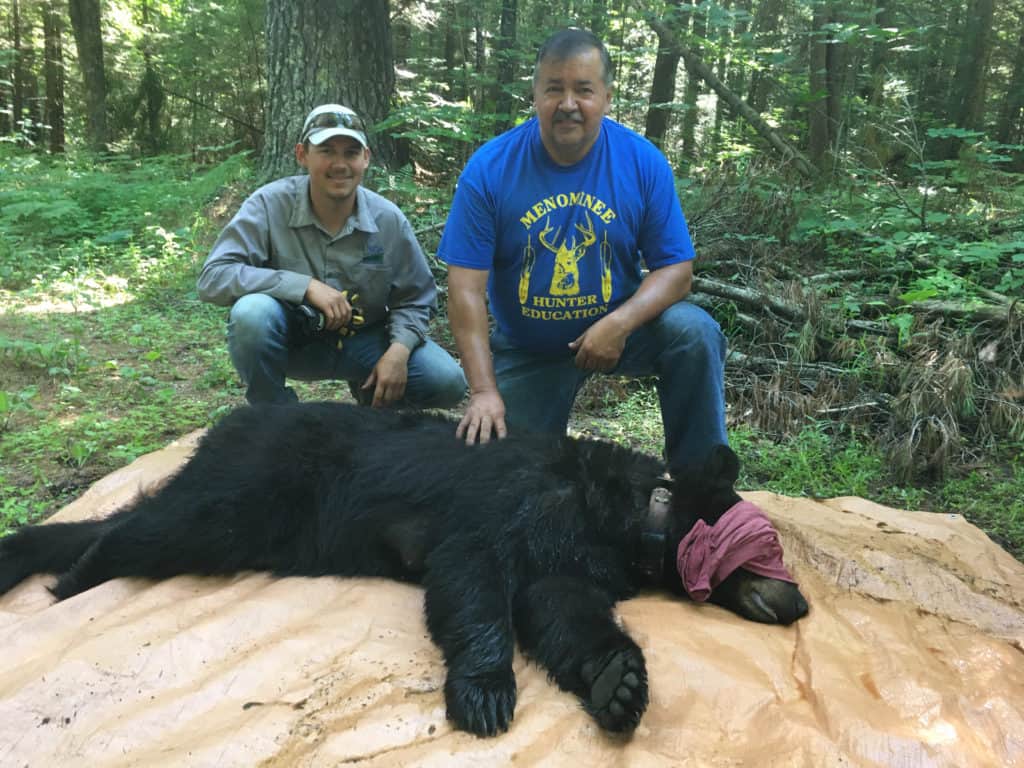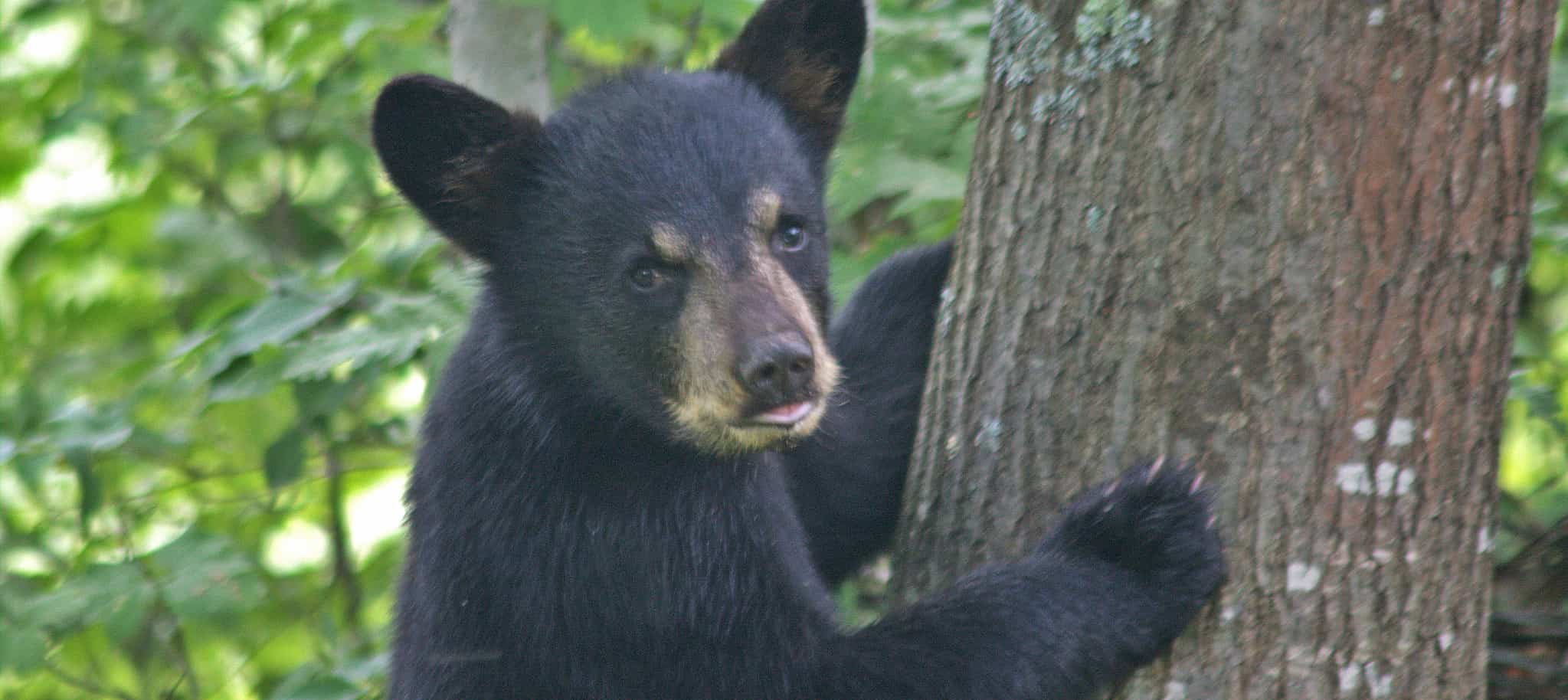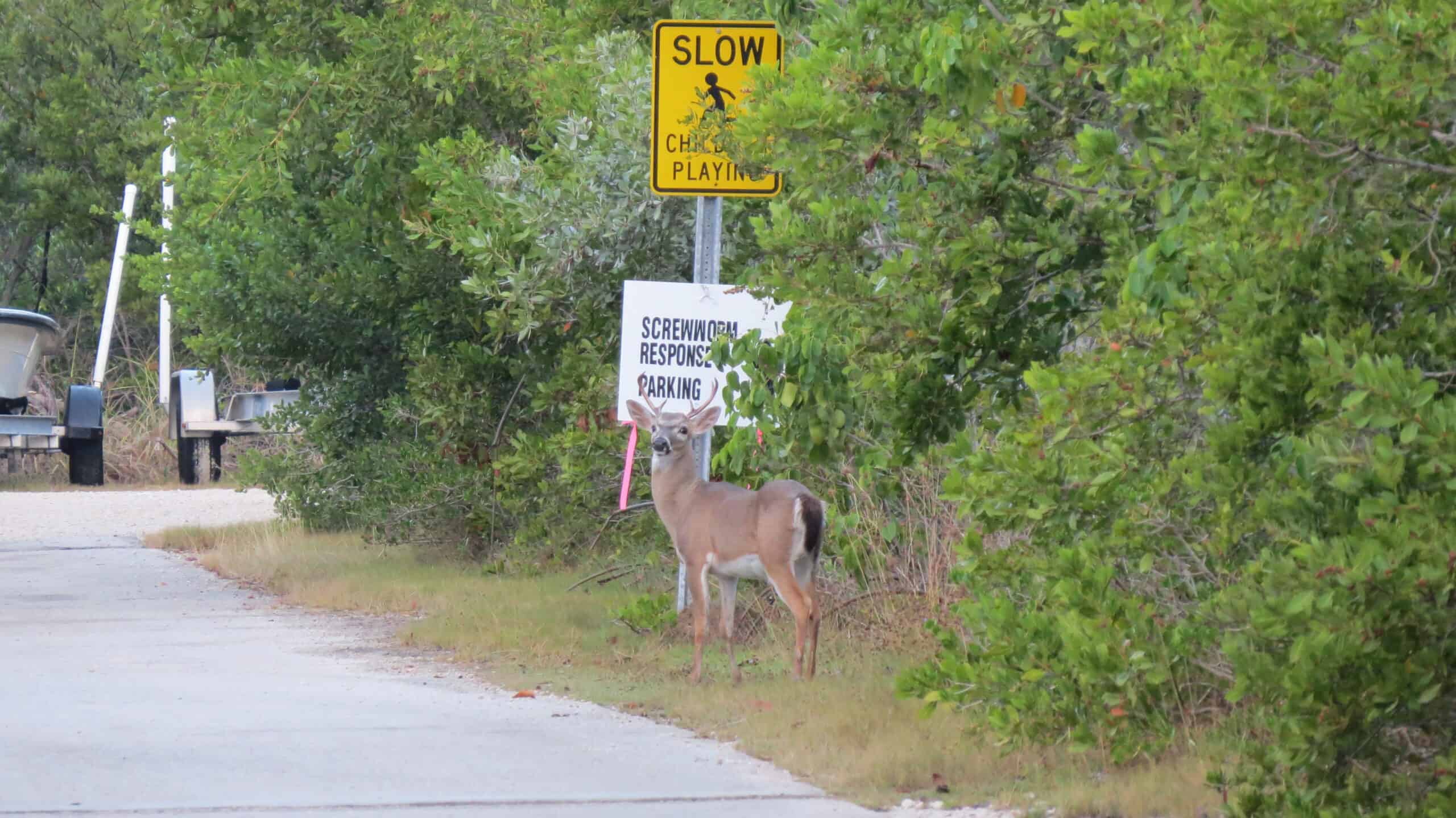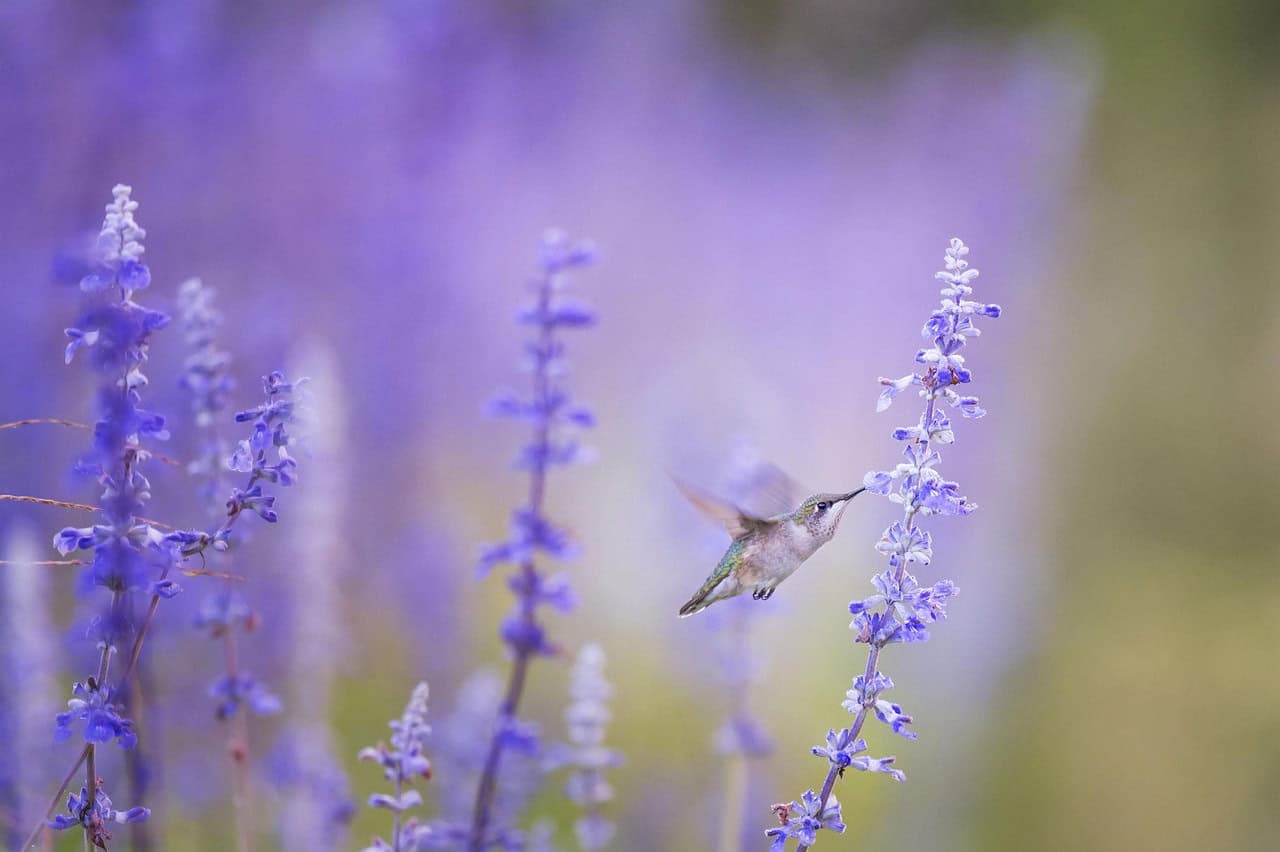Share this article
Busy summer for Wisconsin bear cub rehab
A female black bear with a few irresistibility cute little cubs trailing behind her is an iconic summer scene in the north woods of Wisconsin. But when the cuteness leads visitors and locals to provide food handouts, the bear family begins to rely on human provided food and soon become chronic nuisance bears — a little too comfortable around people and getting into trouble.
In early July, a sow with four cubs began to exhibit chronic nuisance behavior within the Stockbridge-Munsee Band of Mohican Indians reservation in Shawano County. They were raiding garbage cans, grabbing dog food from a kennel and roaming through a busy campground. A local resident whose dog had a close encounter with the bear asked Wildlife Services-Wisconsin for assistance.
In consultation with tribal wildlife biologist Randall Wollenhaup and the adjacent Menominee Nation, specialists from Wildlife Services-Wisconsin assisted by capturing the black bear (Ursus americanus) family in one night. Wildlife Specialist Jeremy Irish chemically immobilized the sow so that Menominee Nation wildlife biologist Don Reiter could affix a radio tracking collar on her. The entire family was relocated and released, as seen in a video posted on the Native American Fish and Wildlife Society Facebook page.
“Day like that, love my job,” Reiter said.

Wildlife Services specialist Kevin Bolder, left, and Menominee Nation wildlife biologist Don Reiter, appear with a sedated, collared bear sow prior to release. Credit: Courtesy Don Reiter
Working with bear cubs can be common for Wildlife Services in Wisconsin between May and July, when young cubs are most vulnerable. Occasionally cubs become orphaned — through vehicle collisions, illegal shooting of sows and accidental separation or abandonment — and in cooperation with the Wisconsin Department of Natural Resources, Wildlife Services is called upon to capture orphans and transfer them to licensed wildlife rehabilitators.
Our Rhinelander district office has captured 12 black bear cubs and transported them to local licensed wildlife rehabilitators. The primary wildlife rehabilitator that receives orphaned cubs is Wild Instincts in Rhinelander, Oneida County — a facility that specializes in cubs.
Eleven cubs were transferred to Wild Instincts and one cub to a wildlife rehabilitator in Polk County. In three instances, cubs were reported wandering roads alone and deemed abandoned or accidently separated from their mothers. In early July, the illegal actions of a homeowner, who became fearful for his wife’s safety when he saw a bear peering into his window, left three cubs orphaned. A sow with a broken back, likely the victim of a vehicle collision, was euthanized by a state warden after it was determined she could not survive on her own. We captured and transported her three cubs to Wild Instincts.
After mid-July, Wildlife Services may release orphaned cubs into the wild rather than take them to rehabilitators if they are deemed large enough to survive on their own. Cubs transferred to rehabilitators are typically kept in pens with minimal human contact and are released in late summer or early fall after receiving ear tags.
Header Image: Working with bear cubs can be common for Wildlife Services in Wisconsin between May and July, when young cubs are most vulnerable. Credit: Jon DeJong








